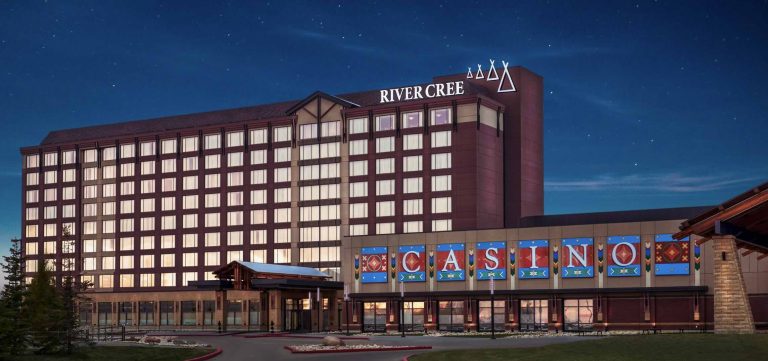
As Alberta prepares to kick off its regulated iGaming market launch early 2026, local brick-and-mortar casinos cannot help but question their future.
Currently, Alberta only has one licensed iGaming website, Play Alberta, which is run by the Alberta Gaming, Liquor, and Cannabis (AGLC). However, players in the province can still legally access offshore gambling platforms like Jackpot City and PlayOJO.
Bill 48 (Alberta iGaming Act) passed the third reading in May and now awaits the Lieutenant Governor’s Royal Assent. Once signed into law, the bill will open the door for private operators to apply for licenses — creating a competitive environment similar to Ontario’s iGaming rollout in 2022.
Industry experts say BetMGM, DraftKings, and FanDuel are among the frontrunners likely to enter the Alberta market. But the spotlight is on how traditional casinos — from Edmonton’s River Cree to Calgary’s Grey Eagle — will adapt their business models to avoid being sidelined in a digital-first gambling era.
Brick-and-Mortar Casino Operators Voice Their Concerns
As Alberta gets ready for regulated iGaming in 2026, traditional casino operators are sounding the alarm — chiefly: the loss of charitable revenue. These casinos have been the lifeblood of frontline nonprofits, with breakfast nonprofit donations tied to on-site gaming revenue. As players go online, operators warn those donations might dry up.
“Private gambling operators in Alberta could siphon off cash from local charities and leave traditional casinos struggling to compete in a new world of iGaming websites,” says a leading industry trade association.
Beyond community impact, operators worry online competitors will erode foot traffic, VIPs, and discretionary spend from the gaming floor. One executive said venues will become little more than logistics hubs while customer acquisition and engagement shifts to anonymous digital platforms, weakening the connection between the community and its brick-and-mortar casinos.
In response, industry leaders are calling on the government to preserve the casino-charity dynamic. They recommend new online operators be required to give a portion of their revenue to local charities, just like the old model. Some also suggest omnichannel alignment, which is the linking of land-based loyalty programs and platforms to online play so that revenue and player relationships stay tied to the province’s physical infrastructure.
If not, there’s growing concern Alberta’s charitable and entertainment landscape will be reshaped without delivering any new value to the communities these casinos once served.
Inside BetMGM’S Playbook: Lessons for Alberta’s Land-based Casinos
BetMGM’s numbers for H1 2025 read like a playbook for how a retail-first operator can scale profitably in a digital age. They made roughly $109 million EBITDA, driven by strong iGaming and sportsbook growth and have publicly raised near-term profitability targets and a longterm margin roadmap.
Three key takeaways map directly to what Alberta physical casinos can do. First, BetMGM doubled down on omnichannel integration: exclusive digital content, a national digital wallet and tighter CRM drove higher cross-sell and stickiness between app users and in-resort customers. For Alberta operators, that means turning slot floors and VIP rooms into acquisition channels rather than just revenue centers: embed sign-ups, wallet top-ups, and loyalty earn/redeem across retail and online touchpoints.
Second, proprietary and exclusive content was a multiplier. BetMGM’s omnichannel titles lifted iGaming revenue and platform engagement. In a similar way, Alberta casinos should negotiate content or brand partnerships (local tournaments, co-branded drop jackpots, or exclusive themed games) that give their eventual online partners a retail advantage.
Third, the company’s discipline on acquisition economics and product quality. That is less promos and more personalized retention. From there, improved margins and enhanced scalability followed. Local operators in Alberta can do the same by investing in CRM tooling, gaining richer player analytics, and offering loyalty tiers that reward on-site and online behavior rather than blanket bonuses.
If Alberta’s land-based casinos want to stay relevant in a regulated iGaming world, they won’t survive as passive landlords. BetMGM’s playbook shows the way: integrate, differentiate content, and get serious about data-driven retention.
Key is to Balance Growth with Community Impact
Alberta’s soon-to-happen regulated iGaming market launch means both opportunity and disruption for traditional casinos, global operators as well as policymakers who aim to capture new tax revenue and regulate an activity that already happens offshore.
For land-based casinos, it also means an existential opportunity: how to stay relevant while protecting the charitable ecosystem they’ve supported for so long.
Industry insiders say the answer is in the policy. Ontario’s rollout was a blueprint, but Alberta’s reliance on casino-driven charitable funds means the province must customize. That could mean revenue-sharing from online operators, expanded loyalty programs across retail and digital channels, or private licensees investing in community initiatives. Without those mechanisms, critics fear iGaming growth will come at the expense of nonprofits, community groups, and the thousands of Albertans who rely on them.
And consumer behavior can’t be ignored. Players are mobile-first and expect seamless, digital-ready experiences. Casinos that get this – integrate loyalty apps, exclusive events, and omnichannel offers – will be the ones that remain cultural and entertainment anchors.
As Royal Assent for Bill 48 approaches, the question is no longer if iGaming will change Alberta, but how. The challenge for the province is to balance the new entrants with the old institutions. If done right, Alberta could be not just Canada’s next iGaming market, but a one-of-kind model for growth and community impact.





